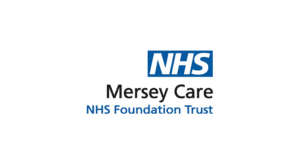
Cancer Support: Find Help and Guidance Now
Get important cancer information here: how to find it, how to treat it, and help with money or daily life challenges.
Learn more on the Macmillan Cancer Support website: Macmillan Cancer Information and Support
Let’s talk about bowel cancer check-ups. These checks help find bowel cancer early, often before you feel sick. Finding it early means it’s easier to treat. It can even stop cancer from growing.
The main check is a simple test at home. It looks for hidden blood you can’t see.
Who needs to be checked? If you are aged 60 to 74, you should get this test every 2 years.
If you are at higher risk (maybe because of your family or how you live), you might need checks sooner or more often. Talk to your doctor.
To get your FREE NHS bowel check-up kit. Call this number: 0800 707 60 60
Want to know more? Look on the NHS website for ‘Bowel cancer screening’
Getting regular breast checks is the best way to find breast cancer early. Often, this happens before you even feel anything. The main check is a special X-ray of your breast called a mammogram.
Who should be screened? In the UK, women aged 50 to 71 are recommended to have a breast screening every 3 years.
Higher Risk: Women with a higher risk of breast cancer (e.g., strong family history) may need earlier and more frequent screenings. Discuss your risk with your GP.
Be Breast Aware: In addition to mammograms, it’s vital to check your breasts regularly for any changes and report them to your GP promptly.
For more information, visit Check your breasts | Breast Cancer UK.
NHS Breast Screening Information: Breast screening (mammogram) – NHS
Book your Breast Screening in Liverpool: Call 0151 282 6920 / 6921 or email bscreening@rlbuht.nhs.uk.
Important Note: Mammograms are not always perfect, so being familiar with your breasts and reporting any changes is crucial.
Let’s talk about cervical cancer checks, also called a smear test. This important test looks for early changes in the neck of your womb (cervix). Finding these changes early means they can be treated before they become cancer.
The test checks for a common virus called HPV, which can cause these changes. Regular smear tests can stop cervical cancer from growing.
Who needs this check? You’ll be invited for screening every 5 years from when you’re 25 to 64 years old. You’ll get your first invitation a few months before you turn 25.
Book your smear test by calling your local doctor (GP).
For more information on cervical screening, visit the NHS website: Cervical screening – NHS
Are you aged 55-74 and a current or ex smoker? The NHS Lung Health Check, offered by Liverpool Heart and Chest Hospital, is designed to detect lung cancer and other lung conditions early, when treatment is often more successful.
Find out if you’re eligible and book your FREE lung health check today:
Link to Liverpool Heart and Chest Hospital Lung Health Check
Early detection can make all the difference.






